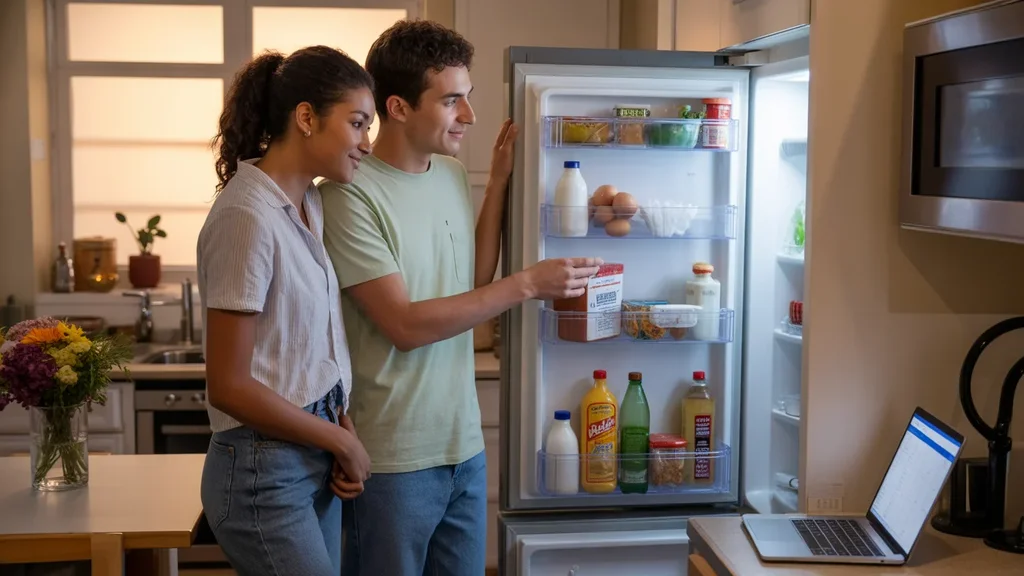Budgeting Smarter in Grand Prairie
For residents of Grand Prairie, TX, creating a realistic monthly budget is key to managing your cost of living. Whether you’re a single renter, dual-income couple, or homeowning family, understanding how expenses typically break down can help you plan smarter. In Grand Prairie, housing and electricity often make up more than 55% of a household’s budget.
As Jasmine, a 27-year-old remote worker, puts it: “Each month, I sit down and look at what I spent on rent, groceries, utilities – all the essentials. It helps me see where my money’s really going and find ways to save. In Grand Prairie, those housing and energy costs add up fast, so you have to stay on top of it.”
In this guide, we’ll share monthly budget examples for different households in Grand Prairie, discuss the biggest cost drivers, and offer tips to stretch your budget further. By the end, you’ll have a clearer picture of what it takes to make ends meet in this Texas city.
What Real Budgets Look Like in Grand Prairie

Let’s dive into the data. Here’s a breakdown of monthly expenses for three typical Grand Prairie residents:
| Expense | Jasmine (Single Renter) | Sam & Elena (Renting Couple) | The Ortiz Family (Homeowners) |
|---|---|---|---|
| Gross Monthly Income | $3,000 | $7,000 | $9,500 |
| Rent/Mortgage | $1,100 | $1,800 | $2,400 |
| Utilities | $180 | $250 | $350 |
| Food | $400 | $800 | $1,200 |
| Transportation | $200 | $500 | $800 |
| HOA/Fees | $0 | $200 | $350 |
| Miscellaneous | $400 | $1,000 | $1,500 |
| Savings | $300 | $700 | $950 |
| Total | $2,580 | $5,250 | $7,550 |
These estimates reflect common lifestyle costs in Grand Prairie. Housing takes the biggest bite, ranging from 37-46% of gross income. Food, transportation, and utilities are the next largest expenses. Note that these figures represent gross monthly income, before taxes are deducted.
Biggest Cost Drivers
So what pushes budgets to the limit in Grand Prairie? Seasonal cooling costs are a major factor. Summer electric bills can easily top $200/month for an apartment. HOA fees, which often include water, trash, and amenities, add $200-500/month for many renters and owners.
Transportation is another pain point. Gas, tolls, and car maintenance add up quickly, especially for longer commutes. Most Grand Prairie residents spend 10-15% of their income getting around.
Of course, rent and home prices continue to climb. In Grand Prairie, most renters pay between $1,100–$1,600 for a 2BR apartment. Aspiring homeowners need to budget $1,800+ for a typical mortgage payment, plus higher utilities, insurance, and repair costs.
Tips to Stretch Your Budget Further
While living in Grand Prairie isn’t cheap, there are ways to keep costs in check:
- Shop at discount grocery stores like Aldi or Walmart Neighborhood Market. Buying staples in bulk can trim your grocery bill 15-20%.
- Take advantage of SRP off-peak billing in the summer. Running appliances at night can shave 5-10% off your energy costs.
- Consider a window shade system or smart thermostat to manage A/C use. Many utilities offer rebates.
- Ditch the car when you can. Public transportation and bike-friendly trails offer low-cost ways to get around.
- Review your housing costs annually. Sometimes moving to a different neighborhood or downsizing can yield big savings.
🏆 Pro Tip: Check for utility rebates and incentives in Grand Prairie to offset cooling costs. Many programs offer $50-200 for upgrading to efficient HVAC systems or thermostats.
FAQs About Monthly Budgets in Grand Prairie
Can you live in Grand Prairie on $3,000/month?
Yes, but it requires careful budgeting. Expect to spend at least $1,500 on basic living expenses like rent, food, and bills. Saving may be limited.
What’s a realistic rent budget for Grand Prairie?
Plan for monthly rent of $1,100-$1,600 for a typical 1-2BR apartment. Utilities will add $150-$250+, depending on the season.
What’s a good budget breakdown for $4,000/month in Grand Prairie?
Aim for 30% ($1,200) to housing, 15% ($600) to food, 10% ($400) to transportation, 10% ($400) to utilities and bills, 10% ($400) to savings, and 25% ($1,000) to discretionary spending and other goals.
Planning Your Next Step
Budgeting in Grand Prairie is all about balance. By understanding your core expenses and cutting costs strategically, you can build a spending plan that works for your lifestyle and goals.
Use the examples and tips above as a starting point. Then, dive deeper with our guides to housing, food, transportation, and utility costs in Grand Prairie. With a little research and planning, you can craft a budget that helps you thrive in this vibrant Texas city.
